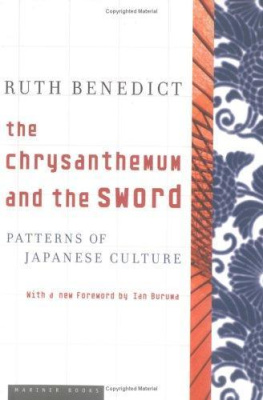DECISION-MAKING AND JAPAN
First published 1995
by Japan Library
Reprinted 2003
by Routledge
Published 2013
by Routledge
2 Park Square, Milton Park, Abingdon, Oxon OX14 4RN
711 Third Avenue, New York, NY 10017 USA
Routledge is an imprint of the Taylor & Francis Group, an informa business
Ruth Taplin 1995
All rights reserved. No part of this publication may be reproduced, stored in a retrieval system, or transmitted in any form or by any means, without prior permission in writing from the Publishers, except for the use of short extracts in scholarly criticism
ISBN 978-1-873-41034-9
ISBN 978-1-315-07323-1 (eISBN)
British Library Cataloguing in Publication Data
A CIP catalogue entry for this book is available from the British Library
Typeset by Bookman, Slough, in Goudy Old Style Roman 12 on 13 point
Publisher's Note
The publisher has gone to great lengths to ensure the quality of this reprint but points out that some imperfections in the original may be apparent.
A GREAT NUMBER of people have been instrumental to the success of this project, including Mr Christopher Everett, Director-General of the Daiwa Anglo-Japanese Foundation and Mr Donald Warren-Knott, the former Administrator of the Great Britain Sasakawa Foundation who very kindly provided grants to enable this book to become a reality. Mr Mark Gifford-Gifford, Director of the Centre for Management Studies at the University of Exeter, offered a wide range of support including the services of Mrs Joane Whitmore who typed the manuscript many times over. Also, I am most grateful to the managers of the companies in the various countries that I visited in Britain, America and East Asia who were not only gracious hosts, but shared their candid thoughts concerning the differences between Japanese and Anglo-American decision-making processes. Both Mr Dick Wilson, former editor of the Far Eastern Economic Review, and Dr Sam Whimster were most helpful and inspirational in our discussions together. Finally, I wish to thank Dr J E Hoare of the Foreign and Commonwealth Office, and Mr Paul Norbury, Publisher of the Japan Library, for the generous amounts of time they have given to make this book a reality.
THIS BOOK explores how management decision-making operates in Japanese companies and how cultural assumptions influence such decisions. We explain why the Japanese behave the way they do, how they communicate, how Western company managers can avoid making faux pas in their dealings with Japanese managers, the nature of the Japanese ranking system and how Japanese corporate management decision-making procedures differ from those in the West. To enter the Japanese market successfully, all these different facets of Japanese management decision-making need to be understood.
In the first chapter we clarify which aspects of Japanese culture may be universally applied and those traits that are native to Japan, using material from a Japanese writer. This separation is important because to understand how company decisions are made we need to know what characteristics Western companies share with the Japanese; which are derived from the West and which are native to Japan. Without this understanding, it is impossible to know which is the most efficient way to communicate more effectively with the other culture. We provide a conceptual framework to understand this analysis and explain the cultural characteristics that are not transferable from the Japanese. We explain how basic cultural assumptions that are rooted in history correspond to the essence of Japanese decision-making in corporations. Central decision-making processes such as nemawashi, uchiawase, ringi and single unions are linked to this historical account.
Essential to this assessment is the idea that Japanese corporations tend to be systematic wholes rather than separate conflictual units. This tendency is based in Japanese history and the way in which Japan's whole economic structure evolved. Konosuke Matsushita, who founded Matsushita Electric Company (National Panasonic), for example, saw that his aims and those of his workers were the same, and would not allow journalists to play managers off against the workers. The cooperation that seems to come naturally in terms of social consensus in Japanese companies has often been ascribed to the historical manner in which taxation was levied on peasants and how they cultivated their rice fields.
In we discuss how decisions are made in Japanese companies, and make comparisons with management decision-making in Western companies. We assess both informal and formal methods of decision-making, delegation and control, obligation and feeling, groupism and individualism and relate such decision-making patterns historically to Japan and Western culture. Next, we discuss total quality management which is a true combination of Western ideas and Japanese practice now exported back to the West. Useful explanations and examples from the author's interviewing are given to further understanding of Japanese culture and business practice in relation to the West.
The fourth chapter concentrates on Japanese management working practices in relation to those in the West. Issues of empowerment and comparisons are made with American, British and Russian systems. We assess different working practices such as job rotation, the need for objectives, training policies and dealing with underperformance within the Japanese and Western context. This is followed by an assessment of some of the results of interviewing, giving us further insight into how Western managers feel about Japanese managers and vice versa. Examples are drawn from interviews conducted by the author in the City of London, Birmingham, the West Country and in parts of the North, as well as from the research visits to Thailand, Malaysia, Singapore, Japan, Hawaii and 'Silicon Valley', California, in Spring 1991.
The final chapter, using the examples of Western companies working with the Japanese in Tokyo and Westerners working with Japanese companies in London, shows us how a managerial decision-making fusion between the two cultures may work in practice. All these ideas and examples have been used as coursework for company managers attending the author's course on Japan at the Institute of Directors and Institute of Export.
A number of essential issues that explain Japanese company practice are also dealt with in this book. One such issue, for example, is the Japanese capacity to readily adopt technological processes and improve upon them without any great interference to their own culture. To gain technological expertise and not disrupt their own society, the Japanese are willing to bring in foreigners, providing them with good laboratories and giving them many 'perks' that they would not receive in their own country. This process allows the transfer of technology from the West without disrupting the harmony of Japanese society in causing Japanese individuals to stand out, taking them outside of the group.








